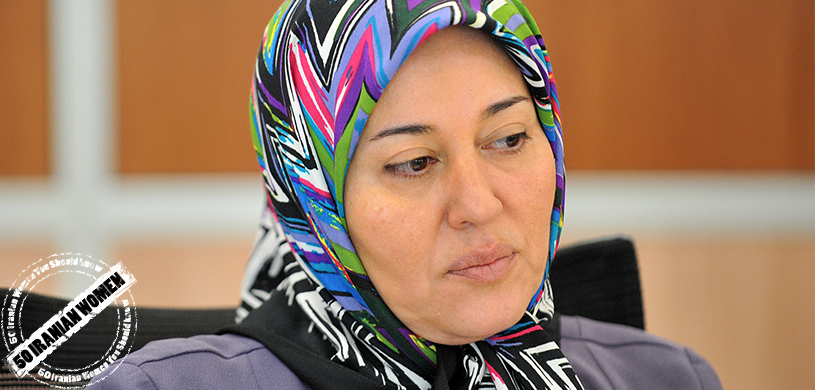Global and Iranian history are both closely intertwined with the lives and destinies of prominent figures. Every one of them has laid a brick on history’s wall, sometimes paying the price with their lives, men and women alike. Women have been especially influential in the past 200 years, writing much of contemporary Iranian history.
In Iran, women have increased public awareness about gender discrimination, raised the profile of and improved women’s rights, fought for literacy among women, and promoted the social status of women by counteracting religious pressures, participating in scientific projects, being involved in politics, influencing music, cinema... And so the list goes on.
This series aims to celebrate these renowned and respected Iranian women. They are women who represent the millions of women that influence their families and societies on a daily basis. Not all of the people profiled in the series are endorsed by IranWire, but their influence and impact cannot be overlooked. The articles are biographical stories that consider the lives of influential women in Iran.
IranWire readers are invited to send in suggestions for how we might expand the series. Contact IranWire via email ([email protected]), on Facebook, or by tweeting us.
* * *
Seyedeh Fatemeh Moghimi was born in 1958 in Tehran into a family of educators. Before the 1979 Islamic Revolution, she graduated in civil engineering in England and then went on to complete a PhD in development management. Moghimi is now the CEO of Sadid Bar International Transport.
Although she now has over 30 years of experience in the transportation and trucking industry, she started out as a translator for an international transportation company in 1979. Just four years later, she decided to start her own transportation company.
Initially lacking funds, she was forced to start out her business in a little room at her husband’s company, where she also took care of her baby. She was the company’s sole employee for some time.
“My education in civil engineering is far from the job I was going to end up in but I thought it better to start there,” Seyedeh explains. “After four years I tried to get permission to establish a transportation company by myself. But my application was refused by officials as they said it was impossible for a woman to do this type of profession. I wanted to prove that I could. After I approached them many times, they gave me a temporary permit. I passed so many exams and went to so many classes just to show that I could do it. That’s how I started up a business.”

Moghimi was so successful in her endeavor that her company is now one of the leading transportation companies in Iran. In 2003, the Iranian Terminal Organization awarded her the honor “Model Manager of the Year.” Then, in 2006, Labor Cultural Center voted her in as “Model Job Creator.” A year later, as she turned 50, the Transportation Ministry selected her as a “Pioneer for Transportation.”
“I was manager for the first four years that I was at this job,” Moghini explains. “It was then that I started to show that I had the ability to influence the people I work with. Fortunately, all of the people that worked with me during those four years — the drivers, clients, and merchants — said they’d like to be in business with me. During the first year of my business, I already had over 200 drivers. I showed them that I was capable of succeeding in this industry.”
For 13 years, she was also the head of dispute management at the Iranian Chamber of Commerce, during which she founded the National Society of Woman Job Creators. Then in 2012, the Saudi-based Islamic Development Bank nominated her as the 2012 “Job Creator of the Islamic World.”
Moghimi travels a lot, organizing workshops in a range of countries including Malaysia, Sri Lanka, Indonesia, Cambodia and Vietnam. A number of Iranian universities have acknowledged her success by teaching about it to their students.
But she has stressed that success did not come easily. In an interview in 2011, she was asked about the obstacles she faced.
“The government and the rules didn’t hinder me but peoples’ attitudes did,” she said. “They couldn’t accept that a woman worked in this type of job, one that was traditionally done by men. It’s not just Iran though. Transportation all over the world fails to accept that a woman is capable of doing this job. If somebody wants to do something, it depends on their mentality, not their gender.”
Also in the series:
50 Iranian Women you Should Know: Jinous Nemat Mahmoudi
50 Iranian Women you Should Know: Simin Behbahani
50 Iranian Women you Should Know: Forough Farrokhzad
50 Iranian Women you Should Know: Parvin Etesami
50 Iranian Women you Should Know: Farokhru Parsa
50 Iranian Women you Should Know: Jamileh Sadeghi
50 Iranian Women you Should Know: Fatemeh Daneshvar
To read more stories like this, sign up to our weekly email.
visit the accountability section
In this section of Iran Wire, you can contact the officials and launch your campaign for various problems

























comments